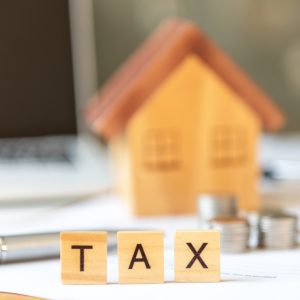
Portland’s property tax bills often surprise many new homeowners. You open that envelope from the county and wonder why the number looks so different from what your real estate agent mentioned. The rates here are shaped by decades of voter decisions and state laws that don’t exist anywhere else in the country.
In Portland, there are also caps, limits, and this weird thing called compression that keeps everything in check. It sounds confusing, but it actually works in your favor most of the time. Read this whole guide to learn more!
What Influences Portland Property Tax Rates
Several factors determine what you’ll pay in property taxes each year. Some you can control, some you can’t, but they all matter.
Your Home’s Assessed Value
Your assessed value is the biggest factor in your tax bill, and it’s probably not what you think. This isn’t the same as what your house would sell for if you listed it tomorrow. Oregon has this rule that caps assessed value growth at just 3% per year, no matter what’s happening in the market.
That means if you bought your house five years ago and Portland’s real estate market went nuts, your assessed value is probably way lower than your actual home value. That cap protects you from huge tax increases just because your neighborhood got trendy.
Where You Live in Portland
Location affects your rate in ways that aren’t always obvious. Different parts of Portland fall into different levy code areas, which are basically tax districts.
Your house might be in one district that includes certain schools and park services, while your friend’s house, three miles away, is in a totally different one with a different mix.
Each district has its own rate depending on what services it provides and what voters in that area have approved over the years.
Voter-Approved Bonds and Levies
When Portland residents vote yes on bonds or levies, those costs land on property tax bills. These might fund new school buildings, park renovations, or fixing old water pipes.
The city can’t just add these charges on its own. Voters have to approve them first. Once they pass, they show up on your annual bill until the project is paid off, which usually takes several years.
Tax Exemptions You Might Qualify For
Seniors, veterans, and people with disabilities can get significant tax breaks that most people don’t know about. There are also programs specifically for low-income homeowners who are struggling with their bills.
These exemptions aren’t automatic. You have to apply for them. But if you qualify, they can knock hundreds or even thousands off your annual bill. It’s worth checking if you fit any of the criteria because the savings are real.
Before your next tax bill hits, Property Max can help you sell your home for a fast, fair cash offer and free yourself from increasing costs.
2025 Property Tax Rates in Portland, OR
Portland charges two main rates on your tax bill. They serve different purposes, but both show up as charges per $1,000 of your home’s assessed value.
City of Portland Limited Rate
Portland’s limited rate is $8.5781 per $1,000 of assessed value. This is the money that pays for everyday city operations, like police officers responding to calls, firefighters keeping you safe, crews fixing potholes, and staff maintaining parks.
The rate changes a little bit each year when the city council approves the budget. The good thing is that it can’t jump around wildly because Oregon’s constitution puts limits on it. This is basically the cost of keeping Portland functioning daily.
City of Portland Bond Rate

The bond rate sits at $0.3875 per $1,000 of assessed value, which is way smaller than the limited rate. This money goes toward paying back loans the city took out for big capital projects. For example, upgrading the water system, building new community centers, or renovating historic buildings.
Voters had to approve each of these bonds through ballot measures, so you actually said yes to these charges. Once the city finishes paying off a bond, that portion disappears from your bill.
These rates work differently from regular taxes because they’re not subject to the same caps. This means the city collects the full amount every time.
Portland vs. State Tax Comparisons
Portland’s property tax rate is above the state average. In comparison, Oregon as a whole has an effective rate of about 0.859%, and Portland clocks in around 0.99%. That’s a real difference when you’re writing checks every year.
The gap comes from Portland’s mix of city services, school funding, and all those bonds voters have approved over the years for parks, transportation, and infrastructure.
But if you zoom out a bit, the picture changes. Oregon’s overall tax burden isn’t actually that bad compared to other West Coast cities. You’re paying more in property taxes than someone in rural Oregon, but you’re also skipping sales tax on every single transaction.
Someone in Seattle pays lower property taxes but is charged nearly 10% sales tax every time they buy something. Someone in California deals with both high property taxes and sales tax.
Portland’s system puts more of the tax burden on property owners and less on everyday spending. This works out better for some people and worse for others, depending on your situation.
What Do Portland Property Taxes Fund?
As mentioned, your property tax dollars get split up among a bunch of different services and agencies. Here’s where the money goes:
- Schools and education: The biggest chunk goes to local school districts. This covers teacher salaries, building maintenance, buses, and all the stuff that keeps schools running.
- Police and fire services: Emergency response, fire prevention, police patrols, and 911 dispatch all get funded through property taxes. These are usually the second-largest expense after schools.
- Parks and recreation: Portland’s parks don’t maintain themselves. Your taxes pay for mowing, playground equipment, community centers, and programs that keep green spaces accessible.
- Roads and infrastructure: Street repairs, traffic lights, sidewalk maintenance, and stormwater systems all need constant upkeep. Property taxes cover a big portion of these costs.
- Libraries: The library system runs on property tax funding. That’s how they keep branches open, buy new books, and offer free programs.
- Public health and social services: County health programs, mental health services, and various safety net programs get funding from property taxes, too.
- Special districts: Depending on where you live, you might be paying into water districts, transit districts, or other special service areas that handle specific needs.
Oregon Property Tax Laws
Oregon’s property tax system runs on two major laws that voters passed back in the 1990s. These measures completely changed how property taxes work in the state. They’re the reason your tax bill doesn’t automatically increase every time the housing market goes up.
Measure Five and Tax Rate Limits
Measure 5 put a hard cap on how much total property tax you can pay based on your home’s real market value. The limit is $5 per $1,000 for education taxes and $10 per $1,000 for general government taxes. So the absolute maximum anyone can pay is $15 per $1,000 of their home’s market value.
When all the different taxing districts add up their rates and the total goes over these limits, something called compression kicks in and reduces what they can actually collect.
It’s a safety valve that keeps your taxes from getting out of control, no matter how many services the government wants to fund.
Measure 50 and Assessed Value Growth
Measure 50 is the one that really protects you from wild market swings. It limits how much your assessed value can increase to just 3% per year and that’s it. Your house could double in value over five years, but your assessed value only goes up 3% annually.
This measure also locked in assessed values at their 1995 levels minus 10%, then let them grow from there. So if you bought an older home, your assessed value might be way lower than what newer homes in your neighborhood are assessed at. This is even if the houses are worth about the same today.
It creates these weird situations where neighbors pay totally different amounts, but that’s just how the system works now.
How Are Portland Taxes Calculated?
Portland calculates your property tax bill in two different ways, then charges you whichever amount is lower. It sounds weird, but it’s designed to save you money.
Assessed Value Method
This is the simple way. The county takes your home’s assessed value and multiplies it by all the tax rates from your levy code area. So if your assessed value is $300,000 and your total tax rate is $12 per $1,000, you’d pay $3,600.
They also add any special assessments you might have for things like street improvements or sewer upgrades. This method usually gives you the lower number if you’ve owned your home for a while. It’s because that 3% annual cap on assessed value keeps things from climbing too fast.
Real Market Value Method with Measure 5 Limits
This method uses what your house is actually worth right now, or your real market value. However, measure five caps the total rate at $15 per $1,000 of real market value, split between education taxes and general government taxes. So even if all the taxing districts want to collect more, they can’t go above those limits.
The county calculates what you’d owe using this method. If it’s less than the assessed value method, that’s what you pay. This method usually helps newer homeowners whose assessed values haven’t had time to fall behind market values yet. With Portland property taxes funding so many city services, the rising costs can feel overwhelming. If you’re considering selling, contact Property Max for a fast, fair cash offer
Property Tax Exemptions and Deductions in Portland
Most people don’t know that Portland offers several exemptions. We’ve listed them below to help you out!
Senior and Disabled Citizen Deferral
If you’re 62 or older or if you’re disabled, you can defer your property taxes. That means you don’t have to pay them right now. The state puts a lien on your home and collects when you sell or transfer the property.
There’s a small interest rate, but it’s way lower than what you’d pay on most loans. You have to meet income limits to qualify, but if you’re on a fixed income and struggling with property taxes, this program can be a lifesaver.

Veterans Exemptions
Disabled veterans get some of the best tax breaks in Oregon. If you’re a veteran with a service-connected disability, you can get a portion of your home’s assessed value exempted from taxes.
The amount depends on your disability rating. Veterans with a 40% or higher disability rating qualify, and the exemption increases as your rating goes up. A 100% disabled veteran can get a substantial chunk deducted from their assessed value, which means bigger savings yearly.
Low-Income Exemptions
Oregon has programs specifically for homeowners who are struggling financially. If your household income falls below certain thresholds and your property taxes eat up more than a specific percentage of your income, you might qualify for relief.
The income limits change every year, so even if you didn’t qualify last year, you might this year. You have to apply for these programs since they don’t happen automatically.
Nonprofit and Religious Property Exemptions
Churches, schools, and certain nonprofit organizations can get full exemptions on their property. The property has to be used exclusively for religious worship, education, or charitable purposes.
If you’re running a nonprofit out of your home or thinking about starting one, there are rules about what qualifies and what doesn’t. It’s pretty specific, but organizations that meet the requirements don’t pay property taxes at all.
Not everyone qualifies for Portland’s property tax relief programs, and if the rising costs are becoming unmanageable, it could be the right moment to sell your Portland house faster and other cities in Oregon.
Tax Compression in Portland
Compression happens when all the different taxing districts in your area want to collect more money than Measure 5 allows them to take.
Remember how Measure Five caps total property taxes at $15 per $1,000 of real market value? Well, Portland has a lot of taxing districts: city government, county, schools, parks, libraries, special districts, you name it. Each one sets its own rate, and when you add them all up, they often exceed that $15 limit. That’s when compression happens. The system automatically reduces certain taxes, so your total bill stays within the legal cap.
Education taxes get compressed first, then general government operations. Bond rates don’t get touched because they’re outside the cap. So basically, even though all these districts want their full rates, you end up paying less because the constitution protects you from getting overcharged.
Why Does Your Property Tax Bill In Portland Differ From Your Neighbor’s
You and your neighbor have almost identical houses, but your tax bills look totally different. This happens all the time in Portland, and it’s not a mistake.
When You Bought Your Home
The biggest reason is timing. If you bought ten years ago and your neighbor bought last year, your assessed values are miles apart. Yours has been climbing at that 3% annual cap, while theirs started at the recent purchase price.
Even though your houses are worth the same today, you’re paying taxes on a much lower assessed value. Your neighbor probably looked at their first tax bill and wondered what happened.
Exemptions and Special Programs
Maybe your neighbor is a disabled veteran with a hefty exemption, or they qualified for a senior deferral program.
You wouldn’t necessarily know about their exemptions, but they could be saving thousands while you’re paying full price. These breaks are significant, and not everyone who qualifies actually applies for them.
Different Levy Code Areas
You might be just outside a special taxing district that your neighbor is inside, which means different rates even though you live on the same street. Levy codes determine which combination of taxing authorities charges you, and they can shift from block to block in some areas.
Special Assessments
If your neighbor’s side of the block got a new sewer line last year and yours didn’t, they’re paying extra for that improvement while you’re not. These assessments show up as separate charges on the tax bill and can last for years until the project is paid off.
Portland Neighborhoods and Their Tax Implications
Portland’s neighborhoods don’t just have different vibes. They have different tax rates, too, where you buy matters for your wallet, not just your lifestyle.
Downtown and close-in neighborhoods
The downtown core and places like the Pearl District tend to have higher effective rates because they’re part of more taxing districts. You’re paying for urban services, transit improvements, and special development zones that don’t exist in outer neighborhoods.
These areas often carry extra assessments for sidewalk maintenance, streetlights, and public space upkeep that add up on top of your regular property taxes.
East Portland

These neighborhoods generally have lower rates, partly because they’re in different levy code areas with fewer special districts. But the trade-off is sometimes fewer services or older infrastructure. You might save on taxes but spend more on your commute or have fewer parks nearby.
North and Northeast Portland
These areas fall somewhere in the middle, with rates that vary block by block depending on what districts you’re in. Some streets are in special improvement districts while others aren’t, so your tax bill can change a lot even within the same neighborhood.
Southwest Portland
This area gets interesting because some parts are actually in Washington County instead of Multnomah County, which means completely different tax structures. If you’re house hunting in the Southwest, make sure you know which county you’re in because the rates and rules aren’t the same.
Important Note: If you’re house hunting and comparing neighborhoods, don’t just look at home prices. Check the actual tax rates for each area because the difference can be a few thousand dollars a year.
A slightly cheaper house in a higher-tax neighborhood might actually cost you more in the long run than a pricier house with lower taxes. Don’t let high neighborhood taxes hold you back. We buy Salem homes and nearby cities in Oregon so you can sell fast and move on.
How to File a Property Tax Appeal in Portland, OR
If you think your property tax bill is wrong, you can challenge it. Here’s how:
When You Can Appeal
You have specific windows to file an appeal. The main deadline is usually by December 31st of the tax year you’re appealing. If you just got your assessment notice and it looks off, don’t sit on it.
The county sends these out in the fall, and you need to act fast. There are some exceptions if you discover an error later, but it’s way easier to appeal during the regular period.
What You’re Actually Appealing
Most appeals challenge your home’s assessed value or real market value. Maybe the county thinks your house is worth $400,000, but you know it needs a new roof and has foundation issues they didn’t account for. Or maybe comparable homes in your neighborhood are selling for way less than what they valued yours at.
You need evidence, like recent appraisals, comparable sales data, photos of damage, anything that proves their number is off.
Where to File
You file your appeal with the county’s Board of Property Tax Appeals. In Portland, that’s usually the Multnomah County office, but if you’re in a different part of the metro area, check which county you’re actually in. You can file online or by mail.
The forms are available on the county website, and they’re super easy to understand. You fill out basic info about your property, explain why you think the assessment is wrong, and attach your evidence.
What Happens Next
Once you file, you’ll get a hearing date. These hearings are quite informal. You’re not going to court or anything. You show up, present your evidence, and explain your case. The board reviews everything and makes a decision.
If they agree with you, your assessed value gets lowered and your tax bill drops. If they don’t, you can appeal to the Oregon Tax Court, but that gets more complicated and expensive. Most people either win at the county level or decide it’s not worth pursuing further.
How Cash Buyers Can Help With Property Tax Concerns
High property taxes can push homeowners into tough spots. If you’re behind on payments or just tired of watching a huge chunk of your budget disappear every year on a house you don’t even want anymore, contact a cash buyer.
Cash buyers offer a fast exit. When you sell to a company like Property Max, you can close in as little as a week or two. That means you stop being responsible for property taxes almost immediately.
If you’re behind on payments or staring down a bill you can’t afford, selling quickly prevents the situation from getting worse. You walk away clean, no more quarterly statements showing up demanding money you don’t have. We buy houses as-is and handle the whole process, so you don’t need to fix things up while tax deadlines loom.
Key Takeaways: Portland, OR Property Tax Rate
Portland’s property tax rates run higher than most of Oregon, but stay close to national averages. The system protects you with a 3% annual cap on assessed value growth, which means your taxes can’t increase even when the market goes wild. Measure five and compression rules keep your total bill within constitutional limits. Exemptions also exist for seniors, veterans, and low-income homeowners that most people never bother applying for.
Your bill depends heavily on assessment. If your assessment feels wrong, you can appeal it. Just make sure you file by December 31st with solid evidence to back up your case. And if property taxes are weighing you down, call Property Max at (503) 908-6502 to help you sell fast and move on.
Helpful Portland Blog Articles

